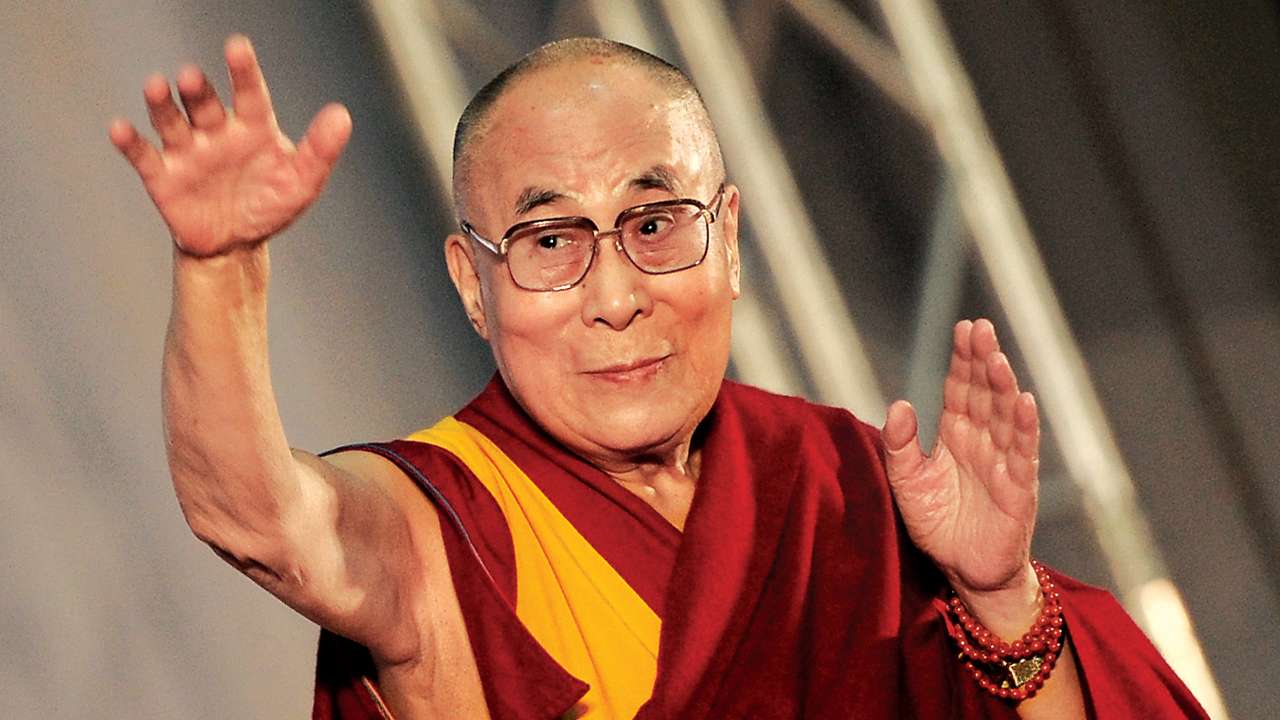
Has Tibetan leader, the Dalai Lama, stirred a hornet’s nest by calling for integration of ancient Indian traditions with our education system? The claws are already out. Many Indians are asking him if he wishes to revive practices like the caste system and sati. For, that’s all their vision permits them to see.
Going by the predominant Indian mindset, however, he might just be spared. The Dalai Lama is after all an outsider who has made India his home. One must remember that till recently, he was consistently referred to in mainstream English dailies as ‘His Holiness’. Some dailies continue to be this respectful. But Indian religious leaders like the Shankaracharyas, however, are tendered no appellation of reverence. In a country where anything pro-Indian is instantly dismissed, such a statement would typically invite serious trolling, but for the fact that the speaker is not Indian, and hence worthy.
The point the Dalai Lama has raised, however, deserves some attention. Many foreign and Indian scholars have been baffled that we are continuing with the Macaulay’s hand-me-down academic system for generations. The single most purpose of the formal Indian education is to get us jobs. Along the way, it has unabashedly fanned the idea of Indian inferiority vis-à-vis the rest of the world that is anyway so deeply ingrained within us that we’re forever scrambling to be wherever the others are and do whatever they are doing.
In the past few years, the country has seen not only the resurgence of Hindutva, that has somehow gotten synonymous with all that is Hindu and Indian, but also, on a parallel track, an obstinate resistance to own its past. Those who have aired thoughts of Indian pride have lived to regret it as they have been promptly banished to the dregs of civilisation reserved for the saffron outfits.
In this bipolar world where information is free and easy but opinions arrive hard and too fast, if you are pro-Indian anything, you’re a saffron faddist. If you flaunt the tricolour, you’re a nationalist who does little other than condemn everything that’s un-Indian. And most of us, with our right-accented education, fear being ostracised socially much more than compromising on our beliefs and sense of fairness.
In the Indian education system, ethics rank low on priority. Thus, you find educated men and women pushing and jostling in trains, littering, breaking queues, banging doors in others’ faces, having noisy parties, competing with the whole world all the time, destroying the environment with their avoidable plastic consumption and, of course, general arrogance and rudeness.
The ‘me-first’ credo of the Macaulay breed is an alien and synthetic superimposition on the Indian psyche. As the Dalai Lama said, India’s sterling contribution is its spiritual greatness. He also wondered why we don’t have ‘India towns’ the way China has ‘Chinatowns’ wherever it goes.
The answer to that would be that Indians are busy shunning India all the time. In the circumstances, the thought of creating an ‘India town’ would seem ludicrous. At a discussion on Sanskrit at a lit fest in Mumbai a few years ago, author Vikram Chandra argued for incorporating Sanskrit texts in the school syllabi. Being an Indian, he had to add a disclaimer that he was not a passionate supporter of the Hindutva cause.
We are living in an environment where any sense of pride in our roots or advocacy of the good in our culture is twisted. It is played back to us mauled and misshapen, as regressive and fanatic drivel. We cannot own our past or our religion without attracting retribution. The architectural superiority of a Mohenjo Daro architecture or the academic brilliance of a Nalanda cannot be justifiably appreciated by an Indian in today’s India without considerable risk to his secular identity.
There are three tenets of our post-modern, secular and progressive times: India is Hindu and Hindu is India; any finger-pointing at other religious practices is Hindu; Hindu is backward fundamentalism. The inherent deductive logic was at work in the way singer Sonu Nigam found himself arraigned along communal lines when he tweeted about the azaan disturbing his sleep in the morning.
Some time ago, a senior and well-known current affairs commentator ridiculed on Facebook a Hindu scholar’s statement that Indian cows produce healthier milk with the right brand of protein. The commentator’s post instantly received a few hundred likes and was shared. Scores of comments mocked the Hindu scholar’s ‘ignorance’ and ‘stupidity’. Many shuddered at the thought that such insipid trivia was getting noticed.
It did not occur to any of them to weigh this claim or merely Google. Native Indian cows produce A2 milk that lacks the avoidable A1 beta-casein protein found in European breeds like Jersey. Such is the compulsive need to condemn anything Hindu in character that the erudite slip up on the basic tenet of erudition: fact check. Their acquired superiority is founded precariously on the denial of their country’s worth.
The moot question is why? You could condemn Prime Minister Narendra Modi without disowning your roots. You do not have to be a ‘backward’ Hindu to feel passionately for your religion or your country. You do not have to be a Hindu at all to claim your share of pride in the ancient past. It would have been easier on our conscience to blame the hardline fringes for such appallingly skewed notions of liberalism. Regrettably, however, it’s the educated elite that are creating these definitions of hate and living by them.
It appears that the British continue to divide India through their failing education model and the native lack of self-esteem. Given the atmosphere of ready bias and instant judgement, it is hugely doubtful that there would be any takers for the Dalai Lama’s plainspeak.
The author is a senior journalist and a communications consultant. Views expressed are personal.